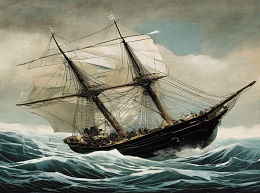1984

"1984" is a dystopian novel written by George Orwell and published in 1949. The story is set in a totalitarian society characterized by extreme government surveillance, manipulation, and control. The novel explores themes of political oppression, individuality, and the consequences of unchecked power. Here's a summary:
Setting:
The novel is set in the superstate of Oceania, a dystopian world divided into three totalitarian superstates: Eastasia, Eurasia, and Oceania. The story primarily unfolds in Airstrip One (formerly known as Great Britain), a province of Oceania. The ruling party is led by Big Brother, an authoritative and omnipresent figure.
Characters:
-
Winston Smith: The protagonist, a low-ranking member of the Outer Party who begins to rebel against the oppressive regime.
-
Julia: A fellow party member with whom Winston begins a forbidden love affair.
-
O'Brien: A high-ranking Inner Party member whom Winston believes is a secret rebel against the regime.
-
Big Brother: The symbolic and ever-present figurehead of the ruling Party, embodying its authority and control.
Plot Summary:
-
Introduction to Oceania:
- Winston Smith, a discontented member of the Outer Party, lives in Airstrip One under the oppressive rule of the Party led by Big Brother. The Party controls every aspect of people's lives, monitors their thoughts, and rewrites history to maintain its control.
-
Winston's Rebellion:
- Winston starts to rebel against the Party's control by keeping a secret diary and engaging in forbidden thoughts. He develops a fascination with the past and questions the reality imposed by the Party.
-
Love Affair with Julia:
- Winston starts a forbidden love affair with Julia, another Party member who shares his discontent. Their relationship becomes a form of resistance against the Party's prohibition on personal connections.
-
Betrayal and Capture:
- Winston and Julia are eventually betrayed and captured by the Thought Police. They undergo brutal re-education and torture in the Ministry of Love.
-
O'Brien's Betrayal:
- O'Brien, whom Winston believed was a fellow rebel, reveals himself as a loyal member of the Inner Party. He orchestrates Winston's torture and reeducation.
-
Total Subjugation:
- Winston is broken both physically and mentally, completely submitting to the Party's will. He betrays Julia and fully embraces the Party's ideology.
-
The Victory of the Party:
- The novel concludes with Winston's complete subjugation to the Party. He comes to love Big Brother, erasing any remnants of individual rebellion.
Themes:
-
Totalitarianism: The novel explores the dangers of unchecked state power and the manipulation of information to control the populace.
-
Surveillance and Control: Orwell examines the impact of constant surveillance on individual freedom and the ability to think independently.
-
Language and Thought Control: The Party's use of Newspeak and the manipulation of language reflect its control over thought and information.
-
Individual vs. Collective: Winston's struggle for individuality in the face of collective conformity is a central theme.
Significance:
-
Cultural Impact: "1984" has had a profound cultural impact, introducing terms like "Big Brother" and "Orwellian" into everyday language to describe surveillance and authoritarian practices.
-
Relevance: The novel remains relevant in discussions about government surveillance, censorship, and the erosion of individual freedoms.
-
Literary Legacy: "1984" is considered one of the most influential dystopian novels, shaping the genre and influencing subsequent works.
"1984" serves as a chilling warning about the potential consequences of unchecked government power, thought control, and the erosion of individual liberties. The novel's portrayal of a dystopian society remains a powerful and thought-provoking commentary on the nature of political authority and the fragility of freedom.













